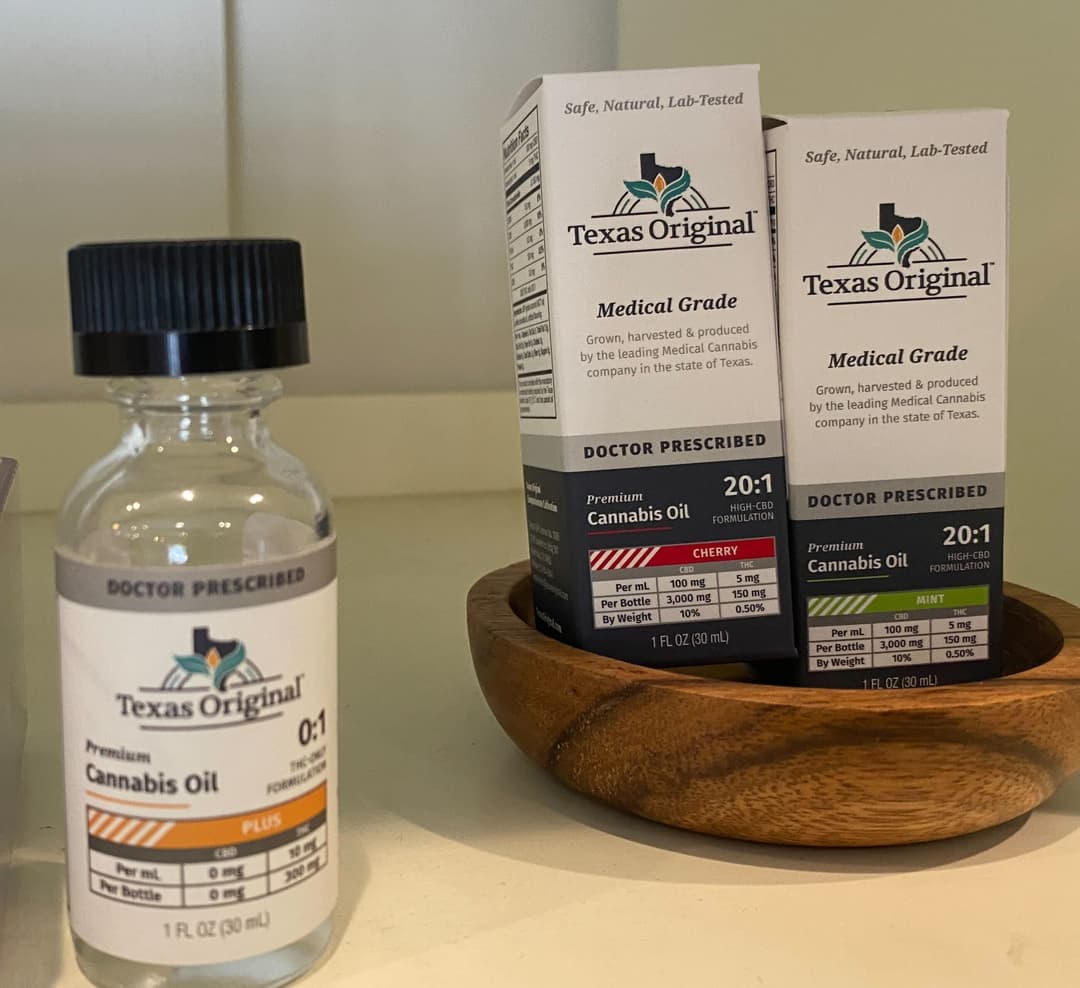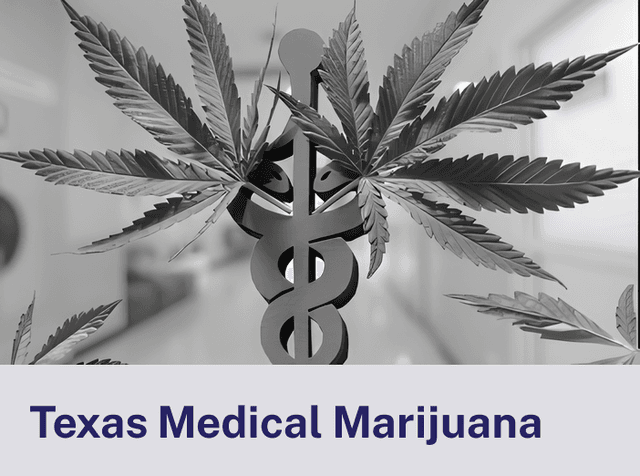Texas Medical Marijuana Card
- Texas Cannabis
- Texas Medical Marijuana Card
Is Medical Marijuana Legal In Texas?
Yes, medical marijuana is legal in Texas. The state legalized medical marijuana in June 2015 through the Texas Compassionate Use Act contained in Chapter 487, Title 6 of the Texas Health and Safety Code. According to this Act, registered medical marijuana patients in Texas may use cannabis products containing less than 1% of tetrahydrocannabinol (low-THC cannabis). The state's medical marijuana program, the Texas Compassionate Use Program (CUP), is administered by the Texas Department of Public Safety (DPS).
How to Get a Medical Marijuana Card in Texas in 2026
Texas does not issue medical marijuana cards. Rather, eligible patients registered in the Texas Compassionate Use Program (CUP) must obtain medical marijuana prescriptions from physicians registered in this program in order to get low-THC cannabis in the state. Patients must meet their physicians via telemedicine or in person to obtain recommendations for medical cannabis.
Qualifying Conditions for Medical Marijuana Prescriptions in Texas
According to the Texas Compassionate Use Act, registered medical marijuana patients can legally obtain low-THC cannabis products from licensed dispensing organizations. Also, the parents or legal guardians of registered medical marijuana patients under 18 years may obtain low-THC cannabis products on behalf of their patients. Per Section 169.003 of the Texas Occupations Code, qualified physicians may prescribe low-THC cannabis to patients with any of the following medical conditions:
Beginning 1 September 2025, new qualifying conditions are allowed per HB 46:
Chronic pain (as of 1 Sept '25)
Traumatic brain injury (as of 1 Sept '25)
Crohn's disease (as of 1 Sept '25)
Terminal Illnesses (as of 1 Sept '25)
Recipient of hospice care (as of 1 Sept '25)
Recipient of palliative care (as of 1 Sept '25)
Terminal cancer
Epilepsy
Seizure disorder
Multiple sclerosis
Autism
Amyotrophic lateral sclerosis
Spasticity
Post-traumatic stress disorder (PTSD)
Can I Get a Medical Marijuana Prescription In Texas Online?
Qualifying patients may get recommendations for low-THC cannabis via telemedicine consultations, after which their physicians can enroll them in the CUP.
How Do I Register With The Texas Compassionate Use Program?
Qualifying patients cannot enroll themselves in the Texas Compassionate Use Program. They must meet licensed physicians who will evaluate their medical conditions and recommend them for low-THC cannabis. The physicians will then register the patients in the state's Compassionate Use Program through the Compassionate Use Registry of Texas (CURT).
Do I Need To Be a Texas Resident To Get a Medical Marijuana Prescription?
Yes. Only permanent residents of the state can be registered in the Texas Compassionate Use Program.
What is the Cost Of a Texas Medical Marijuana Prescription?
Registration in the Compassionate Use Registry of Texas (CURT) is free. A patient only needs to provide their personal information to their physician, who will enter these details into the CURT system.
What Do You Need When Visiting A Medical Marijuana Dispensary In Texas?
A registered medical marijuana patient in Texas will need to provide government-issued photo identification at a dispensing organization in order to obtain low-THC cannabis. In addition, the parents or legal guardians of medical marijuana patients under 18 years must provide valid government-issued identification cards and their social security numbers before getting low-THC marijuana at dispensing organizations. Dispensing organizations check the Compassionate Use Registry of Texas (CURT) to confirm medical marijuana patients' identities and prescription information before dispensing low-THC cannabis to them.

Who Can Prescribe Medical Marijuana In Texas?
Per the Texas Compassionate Use Act, a person must consult with a physician licensed to recommend medical marijuana before obtaining low-THC cannabis at a dispensing organization. According to Section 169.002 of the Texas Occupations Code, a physician that prescribes low-THC cannabis to a patient must be qualified to treat the medical condition that qualifies the patient for medical marijuana treatment. Also, the physician must be registered in the Compassionate Use Registry of Texas (CURT). The Texas Department of Public Safety (DPS) provides the names and contact details of physicians qualified to recommend medical marijuana in the state. If a qualified physician diagnoses a patient with a severe medical condition, they may prescribe medical marijuana for the patient and enroll them in the CURT. Medical marijuana patients registered in the CURT system may legally obtain low-THC cannabis from licensed dispensing organizations in Texas.
Get Certified For Medical Marijuana in Texas
Schedule Appointment NowCan a Minor Get a Medical Marijuana Prescription In Texas?
There is no age limit for medical marijuana prescription in Texas. However, patients under the age of 18 will need the approval of their parents or legal guardians to use medical marijuana. If a qualified physician recommends medical marijuana for a minor (person under 18), they will enter the name and social security number of the patient's parent or legal guardian into the Compassionate Use Registry of Texas (CURT).
Can You Get a Medical Marijuana Prescription at 18 In Texas?
Yes. Texans turning 18 can get medical marijuana prescriptions as adults and apply directly to the state’s medical marijuana program. At this age, they do not require the consent of their parents or legal guardians to get low-THC cannabis prescriptions.
How To Renew Your Texas Medical Marijuana Registration
The Texas Compassionate Use Act does not specify how long a medical marijuana patient's registration under the Texas Compassionate Use Program (CUP) will last. A medical marijuana patient in Texas can obtain low-THC cannabis from any dispensing organization in the state, provided their physician enters their prescription in the Compassionate Use Registry of Texas (CURT).
Renew your Texas Cannabis Card Today.
Can You Grow Medical Marijuana In Texas?
The provisions of the Texas Compassionate Use Act only permit licensed dispensing organizations to cultivate marijuana plants for the manufacture of low-THC cannabis products. Registered medical marijuana patients in Texas cannot grow marijuana plants at home.
Does Texas Allow Medical Marijuana Patients To Designate Caregivers?
There is no provision for caregivers under the Texas Compassionate Use Program (CUP). Therefore, registered medical marijuana patients in the state cannot designate caregivers to obtain low-THC cannabis products from dispensing organizations on their behalf. Nevertheless, the parents or legal guardians of registered medical marijuana patients under the age of 18 can purchase low-THC cannabis products from dispensing organizations for their wards.
Texas Medical Marijuana Reciprocity
The Texas Compassionate Use Program is a restrictive medical cannabis program and does not recognize medical marijuana cards from other states.
Are My Medical Marijuana Records Private?
Yes, the Health Insurance Portability and Accountability Act (HIPAA), like any other medical record, protects medical marijuana records and secures patients' medical history and personal information in Texas. However, employers may get access to the on request if they need information concerning work-related illnesses or injuries about their employees. Similarly, law enforcement agencies can access patients' medical cannabis records if disclosure is required in the public interest.
Does Insurance Cover Medical Marijuana In Texas?
No. Low-THC cannabis costs are not covered by health insurance in Texas.
What Is the Medical Marijuana Prescription Limit In Texas?
Registered patients may only refill up to the amounts of low-THC prescribed by their physicians.
Can You Go To a Dispensary Without a Medical Marijuana Prescription In Texas?
No. Texas-licensed dispensing organizations must access the CURT to confirm patients' low-THC prescriptions as entered by their physicians.
Apply For a Medical Cannabis Card
Book an Appointment
